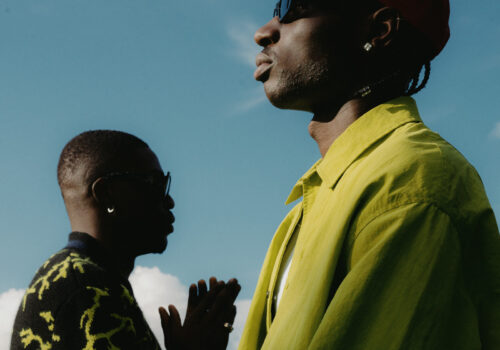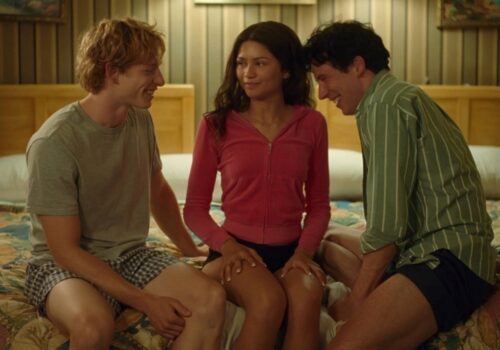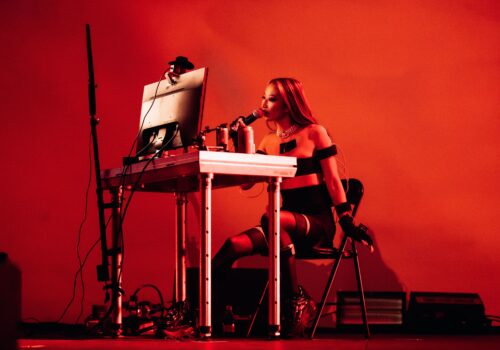What it means to be Black and Irish in 2020
As part of Black History Month, we are celebrating the people of Ireland enriching its cultural tapestry. We invited Dafe Orugbo aka Max Zanga of Kildare group Tebi Rex to pen a guest editorial about his experience as a Nigerian immigrant in Ireland. He wrote about hip hop as a space tailor-made for him and his almost indefinable connection to G Tribe.
Hip-hop is black music. Hip-hop is black culture. I’ve heard and said this so often that it’s just a given to me. It’s built into my perception of what it means to be black and what it means to create art in this genre. But it’s not just me, you ask any white middle-class Trinity student they’re bound to tell you the same. I don’t think this isn’t true mind you, I’m just curious about it. Is Hip-hop any more or less black than Rock or House, two genres whose roots can be directly linked back to black creatives and spaces? Would I furiously defend the unique ‘blackness’ of rock and how AC/DC need to pay homage to Chuck Berry? No. I wouldn’t. While I like Rock and I love House I’m just not as culturally invested in those styles of music. Still, I’m unsure as to why Hip-hop being black culture is something me, a Nigerian immigrant living in Ireland, feels so strongly about. I think the answer can be found in the most unsuspecting of places; Naas.
In my humble opinion, G.Tribe is the biggest(and perhaps the only) rapper of note to come out of Naas. Put simply, that may mean everything or nothing to you. For me, it was the former. Being black in Dublin is weird for a host of reasons, but being black in Kildare is isolating. You can be so far removed from anyone and anything that looks like you. This especially rang true when I was growing up and in this sea of perpetual ‘otherness’, there was G.Tribe – a black rapper from Naas that was doing ‘well’ for himself. Looking back It’s quite hard to describe how much this actually meant me.
For me, doing well in Hip-hop for me had meant the auntys in the church knew about you and were only mildly judgey. I was a fan. Every black kid in my area was a fan, we’d hail him with praises like “he’s actually kinda good” and “no really this guy isn’t shit”. On paper, this doesn’t sound exciting, in the same way, a movie with a black lead shouldn’t be exciting. But if you’re desperate to be seen, like really seen in a way that lets you exist outside of your race while simultaneously reinforcing it, these measured steps forward felt like you were running full throttle toward something better. Something important. So when he announced his first headline show, I knew exactly which direction I would be running in.
I wish I could recall it better. But it does what all-important memories tend to do when you grasp desperately at them, they shift and morph showing you what you want to see. Was the room full or was it empty? Did I effortlessly fit in or did I stick out like a sore thumb? I don’t know. But what I do know is these three things; Firstly, there was a dance battle on stage that I’m pretty sure I won. Secondly, after the show, I got a signed CD of his mixtape that I still have until this day (well have in the loosest sense, it’s in my house somewhere). Thirdly, I remember being in awe of this person who looked like me who was roughly from the same area doing what I wanted to do more than anything else in the world. You couldn’t talk to me about the Class A’z or Redzer or Lethal Dialect (mind you their shit was fire) or anyone else for that matter.
I had seen all I needed to see. I had seen G.Tribe.
Maybe Hip-hop as black culture is important to me because it offers us a space where we can be seen. Where you don’t have to search for representation, but rather it’s woven into the fibres of every song you consume. And not like in an exclusionary way, just a more socially aware one. A space where you don’t have to search for black role models but instead have them thrust upon you. A tailored suit vs an off the rack one. Something built for you and not just altered to accommodate you.
I remember playing my first ever paid gig in Whelan’s for €50. For a brief moment, this felt like all the money in the world because it came from something I loved. Yet it also felt wrong because it was for something that I would have happily done for free. It’s easy to feel like an imposter in a world that wasn’t made for you, in a venue that usually catered to rock acts in a space where your complexion was uncommon, to say the least. But I didn’t bat an eye when it came to spending money to see G.tribe, why shouldn’t my art also have value?
However, discussions around music and influences can never be one size fit all. Especially when race is involved. Every story I can tell or hardship I’ve faced would shock some and pale in comparison to others. It’s wholly unique. There’s a temptation to speak for the few while you have the ear of the many, but that’s not entirely fair is it? To be black in this country is an intricate web of personal lived experiences that are connected despite how different they may be. I don’t make music like G.Tribe. In fact, the only thing we may have in common is the colour of our skin and the fact that we’re both from Kildare but isn’t that enough?
“I don’t make music like G.Tribe. In fact, the only thing we may have in common is the colour of our skin and the fact that we’re both from Kildare but isn’t that enough?”
Dafe Orugbo
I often wonder what my life would have been like without hip-hop culture, without these pockets of society where my racial otherness dissipated for the most part. Not because these spaces were all black (nothing in Ireland bar redeem church is all black) but where blackness was a staple in this shared experience. I can’t tell you what kind of impact the likes of G.Tribe, BZ Blaze, Mic A Blaze records or Ovie had on music culture in this country. All I can tell you is they existed as pillars of black creativity that couldn’t be found elsewhere on this island. If Scary Eire didn’t exist, white Irish people could point to another great Irish artist and to motivate their creative pursuits. However, if the aforementioned artists or organisations didn’t exist I don’t know where I could have turned to.
Perhaps I’m so defensive of Hip-hop being linked to black culture because I know it’s a space I’ll always be able to turn to. I won’t ever run the risk of being potentially cast out from my community and othered like in Rock or House music. I’m not entirely sure. Nevertheless, I’m still curious about a time long since passed, a venue that no longer exists, an artist that I formerly loved and a memory I can barely recall but still cling to till this day. Maybe, in the end, that’s all we can do? Cling to the things and people that resonate with us never being entirely sure as to the why.
I can’t tell you for certain why G.Tribe is important to me. He just is.






